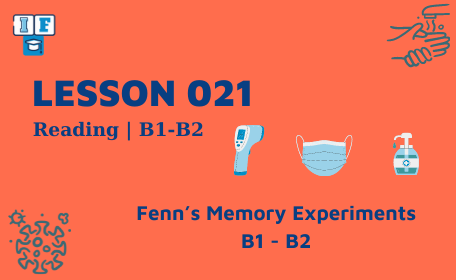BBL021 | Reading | Fenn’s Memory Experiments B1 – B2
Mô tả
Sleep helps reduce errors in memory
Sleep may reduce mistakes in memory, according to a first-of-its-kind study led by a scientist at Michigan State University.
The findings, which appear in the September issue of the journal Learning El Memory, have practical implications for many people, from students doing multiple-choice tests to elderly people confusing their medicine, says Kimberly Fenn, principal investigator and assistant professor of psychology.
‘It’s easy to muddle things in your mind,’ Fenn says. This research suggests that after sleep, you’re better able to pick out the incorrect parts of that memory.’ Fenn and colleagues from the University of Chicago and Washington University in St Louis studied the presence of incorrect or false memory in groups of college students. While previous research has shown that sleep improves memory, this study is the first one that looks at errors in memory, she said.
Study participants were ‘trained’ by being shown or listening to lists of words. Then, twelve hours later, they were shown individual words and asked to identify which words they had seen or heard in the earlier session. One group of students was trained at 10 a.m. and tested at 10 p.m. after the course of a normal sleepless day. Another group was trained at night and tested twelve hours later in the morning, after about six hours of sleep. Three experiments were conducted. In each experiment, the results showed that students who had slept did not have as many problems with false memory and chose fewer incorrect words.
How does sleep help? The answer isn’t known, Fenn said, but she suspects it may be due to sleep strengthening the source of the memory. The source, or context in which the information is acquired, is a vital element of the memory process.
In other words, it may be easier to remember something if you can also remember where you first heard or saw it. Or perhaps the people who didn’t sleep as much during the study received so much other information during the day that this affected their memory ability, Fenn said.
Further research is needed, she said, adding that she plans to study different population groups, particularly the elderly. ‘We know older individuals generally have worse memory performance than younger individuals.
We also know from other research that elderly individuals tend to be more prone to false memories,’ Fenn said. ‘Given the work we’ve done, it’s possible that sleep may actually help them to reject this false information. And potentially this could help to improve their quality of life.’


